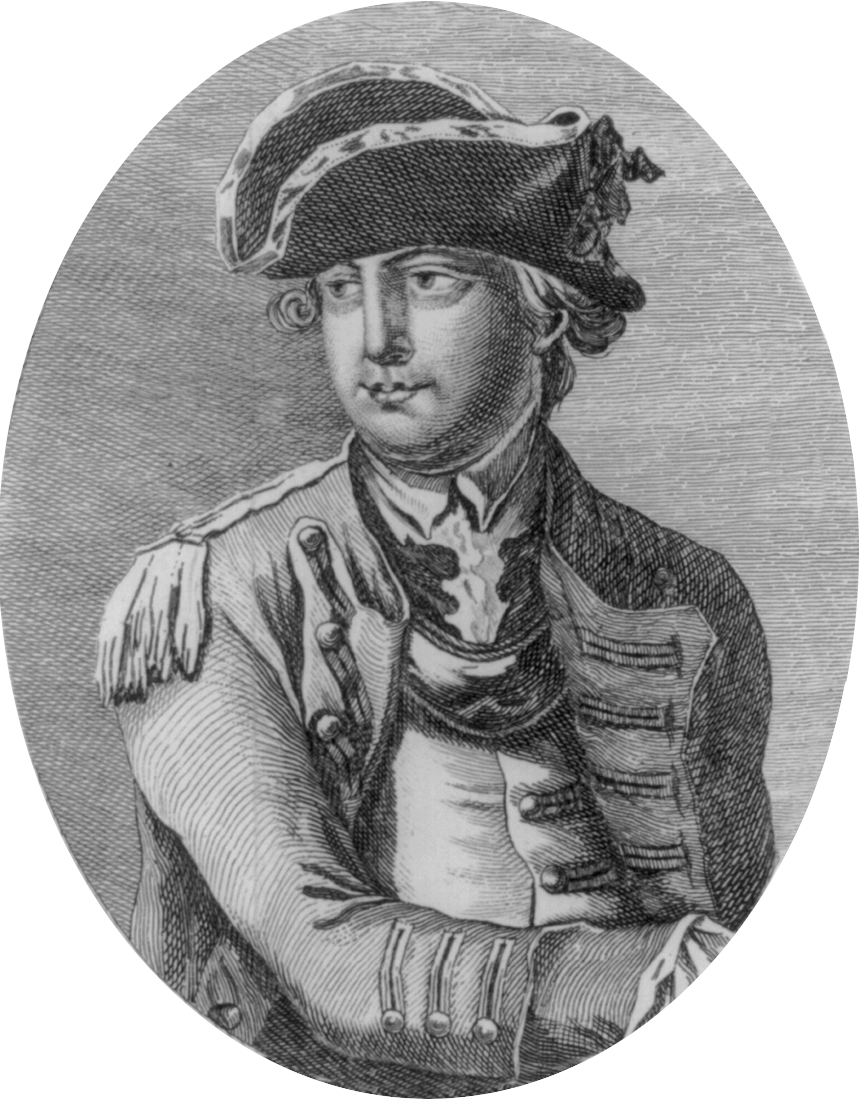
Charles Lee served as a General of the Continental Army during the Revolutionary War. He was a frequent critic of General George Washington, which ultimately ruined his military career.
Early Life
Charles Lee was born on February 6, 1732 in Dernhall, Cheshire, England. After attending military school, he served under his father, who was a colonel of the 55th Foot Regiment. Lee first came to North America during the French and Indian War, serving as a Lieutenant under Major General Edward Braddock. While in America, Lee married a Mohawk woman and was subsequently adopted by her tribe. Due to Lee’s moody temperament, the Native Americans gave him the name “Boiling Water.”
After the North American conflict ended, Lee continued his military service. He fought in the Portuguese army and defended against the Spanish invasion of Portugal. He later served as an aide-de-camp to Polish King Stanislaus II during the Russo-Turkish War.
Revolutionary War
In 1773, Lee moved to North America and settled in Virginia. He soon resigned his Royal commission and offered his military expertise to the Patriots.
Given his lengthy military career, Lee was disappointed when Congress passed him over and named George Washington the leader of the Continental Army. While Lee served as his second-in-command, his bitterness ultimately got the best of him.
While he played a role in several key battles, Lee’s stature rose after his successful defense of Charleston, South Carolina during the Battle of Sullivan’s Island in 1776. While other officers played a more significant role in the victory, Lee was dubbed the “hero of Charleston.” When Lee reunited with Washington in New York, the General recognized his victory by renaming Fort Constitution, which was located on the New Jersey side of the Hudson River, as Fort Lee.
In the wake of his success, Lee doubled down on his efforts to replace Washington as Commander-in-Chief by writing letters to Congress. Instead of rising to the leadership role, he was captured by the British. On the night of December 12, 1776, Lee was captured by a British patrol after he stopped for the night at White’s Tavern in Basking Ridge, New Jersey. He was released two years later as part of a prisoner exchange.
Upon his release, Lee returned to the Continental Army. General Washington tasked Lee with leading the initial assault in what would become the Battle of Monmouth. However, Lee was convinced that the Patriots would be unsuccessful and prematurely retreated in defiance of General Washington’s orders. Following the Battle of Monmouth, Lee continued to criticize Washington and was ultimately court-martialed. Congress found him guilty of disobedience, shameful retreat, and disrespect to the commander-in-chief. Lee was relieved of command for one year.
The disciplinary action only fuel Lee’s attacks against Washington. In 1778, John Laurens, one of General Washington’s aides, came to his defense by challenging Lee to a duel. Laurens shot Lee in the side, but the wound was not fatal.
Later Life
In 1780, Lee formally resigned from the Continental Army. He moved to Philadelphia, where he died of a fever on October 2, 1782.







